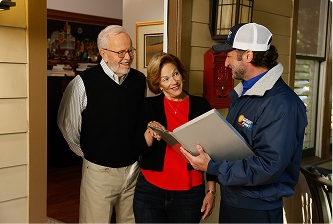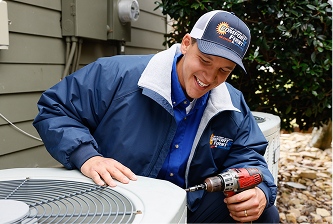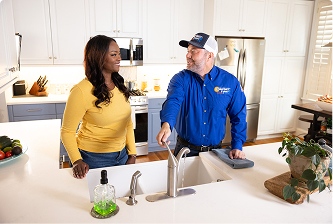
Plumbing is one of the most essential systems in your home, with that being said, it is also often overlooked. It’s responsible for access to clean water, waste removal, and other essential daily tasks; however, many people don’t actively think about their pipes, fixtures, or drains until an issue arises. Understanding your plumbing system can help you prevent costly repairs, spot issues early, and know when upgrades or maintenance is needed. Below, we discuss the ins and outs of plumbing systems, including what can go wrong and how to keep your system in tiptop shape.
Anatomy of a Plumbing System
The anatomy of a plumbing system consists of two main subsystems: water supply and drainage.
Your plumbing system features a range of pipes, drains, valves, and fixtures connected to either a municipal water supply or a well water supply. Each crucial component works together to provide your home with clean water and dispose of wastewater safely and efficiently.
Key Plumbing Maintenance Tips for Homeowners
To ensure your plumbing system is operating efficiently, there are tips you can implement into your maintenance routine:
- Check for leaks from faucets and under sinks regularly
- Clean your drains
- Test your water pressure
- Inspect your water heater
Common Plumbing Issues & How to Prevent Them
It’s crucial to recognize plumbing malfunctions and what to do about them to keep your system running well and prevent future issues. Below are some of the most common plumbing issues and how to prevent them:
Clogged Drains
Clogged drains can happen in your kitchen, bathroom, laundry room, and other rooms throughout your home, even impacting multiple drains at once.
These happen when hair, food scraps, grease, soap scum, and other objects build up in your drains, preventing proper water flow.
The best way to prevent clogs is to only allow water and toilet paper down the drain and routinely clean it.
Leaks
A leak can happen when you least expect it, whether from a faucet, shower head, water heater, sump pump, or other plumbing appliance.
To fix the leak, you can use sealant, including putty or silicone tape, although it’s often only a temporary fix. You may need to schedule a professional repair or replacement.
Low Water Pressure
Your water pressure may be low due to too many appliances running at once, in which case shutting off faucets will resolve the issue.
If this isn’t the case, ensure your water valve is fully open. If the water pressure issue is happening with every faucet, the issue needs professional attention.
Water Heater Issues
If you suddenly lose hot water, there’s likely a problem with your water heater, often from a leaky, corroded, or overheated tank.
Tank water heaters also become less efficient after 10 to 12 years, and tankless water heaters lose efficiency after 20 years. A plumber can inspect your unit and determine whether a repair or replacement is required.
When Should I Call a Professional Plumber?
If you attempt a plumbing fix yourself to no avail, a professional is needed. Call an expert plumbing for the following:
- Persistent leaks
- Low water pressure throughout your home
- Discolored or smelly water
- Burst pipes
- Overflowing toilets
- Gas leaks
- No water
Plumbing Basics FAQ
How often should plumbing systems be inspected?
You should schedule plumbing maintenance annually to identify and resolve wear and tear.
What are common signs of plumbing problems?
Leaky pipes, loud noises, strange smells, mold and mildew, and discolored or off-tasting water commonly indicate a plumbing problem.
Request Plumbing Services From Comfort First
Backed by over 50 years of experience, Comfort First Heating & Cooling is confident that we’ve got the plumbing solutions you need.
We offer same-day and emergency services, financing options, and astounding workmanship provided by highly trained plumbers.
Reach out to our team for expert plumbing solutions in the Triangle or Sandhills areas today!



















